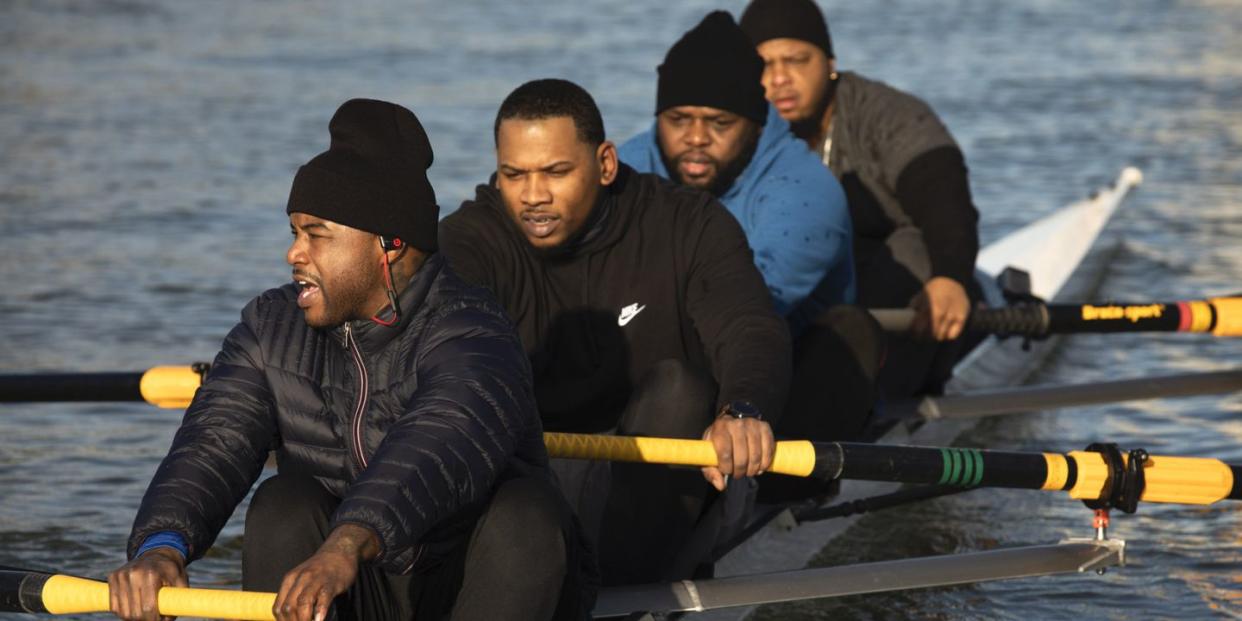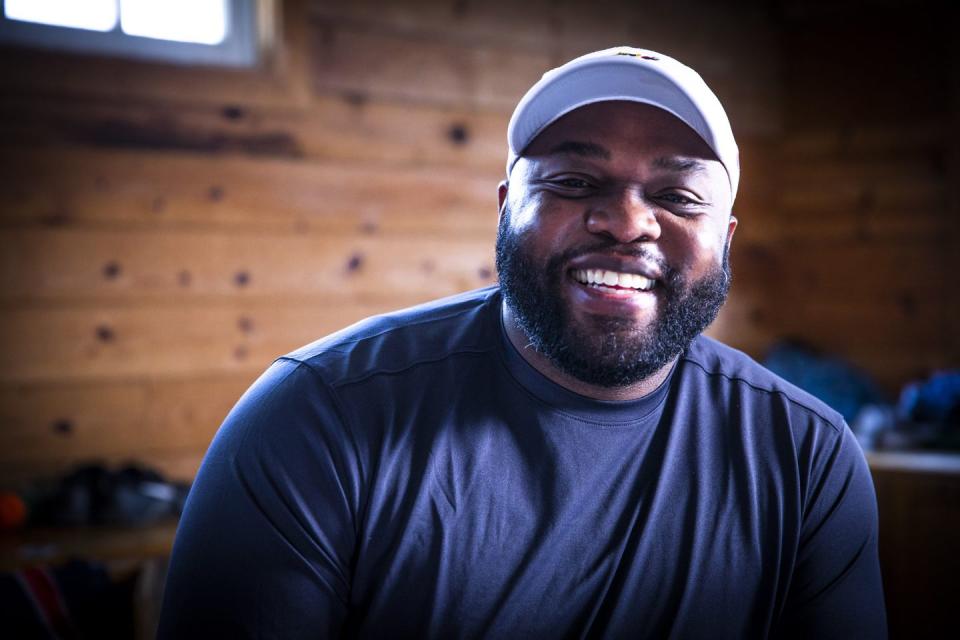The True Story of the First Black Rowing Team

Arshay Cooper, 38, grew up on the West Side of Chicago in the 90s, an area he says was defined by gang violence at the time. On any given day, he'd run into several gangs during his walk to school, among the abandoned buildings and liquor stores that filled the area then. "I said in my book God existed everywhere but [there] because of the violence," he says over the phone. "Gangs were how you found protection."
One day, during his sophomore year at Manley High School in 1997, Cooper walked into the lunchroom to find something out of place: a boat. And a TV monitor, playing footage of Olympic rowers competing—all of whom were white. "No one looked like me and so I thought 'I'm not doing this,'" he says of the video. The next day, a friend (and the promise of free pizza if he showed up to a meeting) convinced him otherwise.
Ken Alpert, a former rower for the University of Pennsylvania, was responsible for the boat. He was a trader working in finance at the time who set out to help form a rowing team in an area that was generationally overlooked. Except, Cooper didn't know how to swim. And none of the guys had ever rowed before.
Still, it was a speech by Alpert that first day that made Cooper and others stay; he said they could travel, receive academic support, and have a chance to bond. Cooper just thought it was his way out of the West Side. Four other guys joined, too—Malcolm Hawkins, Ray Hawkins Jr., Preston Grandberry, and Alvin Ross—all of whom were also confronted with violence on their front door-steps and saw rowing as their escape.

Largely the result of a history of redlining, Black communities have remained overwhelmingly disenfranchised in the city of Chicago. This and collective generational trauma experienced by Black people, says Cooper, turned areas like the West Side into "rough" neighborhoods. "My grandfather's trauma was so bad because of the abuse of segregation and racism. When he moved to Chicago, he couldn't take out loans or find a job because of the color of the skin. He turned to alcohol and drug abuse and that trauma trickles down."
As the first-ever all-Black high school rowing team, their presence didn't go unnoticed at their first race together, a Chicago Regatta during the summer of 1998. "We show up and everyone was white," he says. "The boats were white, the competitors were white, the refs were white. We're the only people of color there and we're nervous."
Cooper explains it was because of feeling so ostracized that the group forged a brotherhood. The idea of drowning alone was enough for them to push forward and together. "It was just us," he says. "We had to be there for each other." They went on to compete in several more races to varying degrees of success, but forever changing the face of rowing. They made the news and their parents were proud. Rowing for Cooper became meditative.
"For two hours a day, it gave you this feeling you'd never felt before. Walking out of the house, there was a lot of chaos. Then you had school, you had to be cool [and] confident. So to be in a place that's so peaceful calmed the storm in me."
Things for the group came to an end after graduating from Manley. The guys went their separate ways and the rowing team at Manley kept on rowing. Cooper went to culinary school, became a public speaker, and eventually taught young kids how to row, too. He wrote a book, A Most Beautiful Thing, now adapted into a documentary executive-produced by rapper Common, NBA player Dwayne Wade, and basketball legend, Grant Hill. "Although I know very little about that sport, I understood team dynamics," says Hill, "the value of those experiences, the value of belonging to a group, and something bigger than yourself."

And the guys' story isn't over. While they didn't win in high school, they all still felt the itch to compete. For the first time in over twenty years, the team came back together to compete at the Chicago Sprints in 2019. The film follows the guys' reunion as they train for the race of a lifetime. We learn more of the backstory of the guys' families, in particular, and struggles with addiction.
After recent news of police brutality in the U.S., one set of scenes also sticks out; the rowing team, now reunited, invites members of the Chicago Police Force to practice and later compete with them at the Sprints. It's a series of moments that feel tone-deaf at first, given the times.
Now living in Brooklyn, New York, Cooper says working with them was important. He wanted to recast the narrative of Black men in Chicago for both the police and the audience—in the end, winning didn't matter so much as making an impact. "They need to know my name," he says. "The first time they go into a Black community, they need to know who we are. If they have to pull a kid over, they will think of our faces now."
A Most Beautiful Thing is streaming now on Xfinity on Demand.
You Might Also Like

